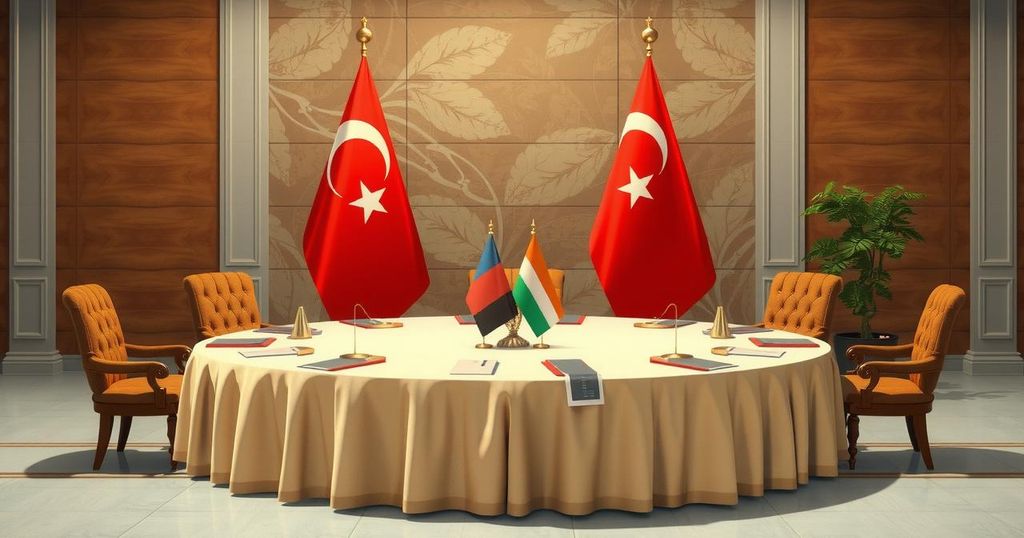Qatar plans to reopen its embassy in Damascus over 13 years after its closure, reestablishing ties with Syria amidst a complex history of involvement in the civil war. This decision emphasizes Qatar’s commitment to its alliances with extremist factions and aims to facilitate humanitarian aid coordination. The move reflects shifting dynamics as Gulf states seek to rebuild relations with Syria after years of isolation.
On December 11, the Qatari foreign ministry announced plans to reopen its embassy in Damascus, more than 13 years after its closure. Dr. Majid bin Mohammed al-Ansari, spokesperson for the ministry, expressed that the move aims to strengthen longstanding fraternal ties between Qatar and Syria, while showcasing support for the Syrian populace as they endeavor to establish a just and stable state. The embassy’s reopening is also intended to enhance coordination for the humanitarian aid flow.
Historically, Qatar has been involved in the Syrian conflict since its inception, providing support to extremist factions such as the Nusra Front, an Al-Qaeda affiliate that has evolved into the influential group Hayat Tahrir al-Sham (HTS). The U.S. Defense Intelligence Agency has revealed that elements of both Qatari and Turkish governments assisted these factions logistically, financially and materially. Notably, comments from former U.S. Vice President Joe Biden suggest that regional allies inadvertently exacerbated the conflict by funding and arming extremist groups like Al-Nusra.
Additionally, a 2016 WikiLeaks revelation highlighted former Secretary of State Hillary Clinton’s acknowledgment of Saudi and Qatari financial backing of ISIS. In recent years, Gulf states have resumed relations with the Syrian government; however, Qatar has remained committed to its alliances with jihadist factions, particularly in the northwest region of Syria, viewing these groups as more aligned with its interests.
The reopening of Qatar’s embassy in Syria comes against a complex backdrop of geopolitical maneuvering in the Middle East, particularly regarding the Syrian civil war that began in 2011. Initially, Qatar was instrumental in funding and arming opposition factions, with claims of backing extremist elements taking root within that strategy. Over the years, many Gulf states began normalizing relations with Syria, yet Qatar maintained its stance, focusing on its ties with jihadist groups, which it considered more beneficial due to their loyalty to Qatari interests.
Qatar’s decision to reopen its embassy in Damascus signifies a potential shift in its diplomatic engagement with Syria, reflecting both a desire to strengthen relations and a deep-rooted political strategy. This action highlights the complex legacy of external involvement in the Syrian civil war and raises questions about the role of regional powers in the ongoing humanitarian crisis and reconstruction efforts.
Original Source: thecradle.co




